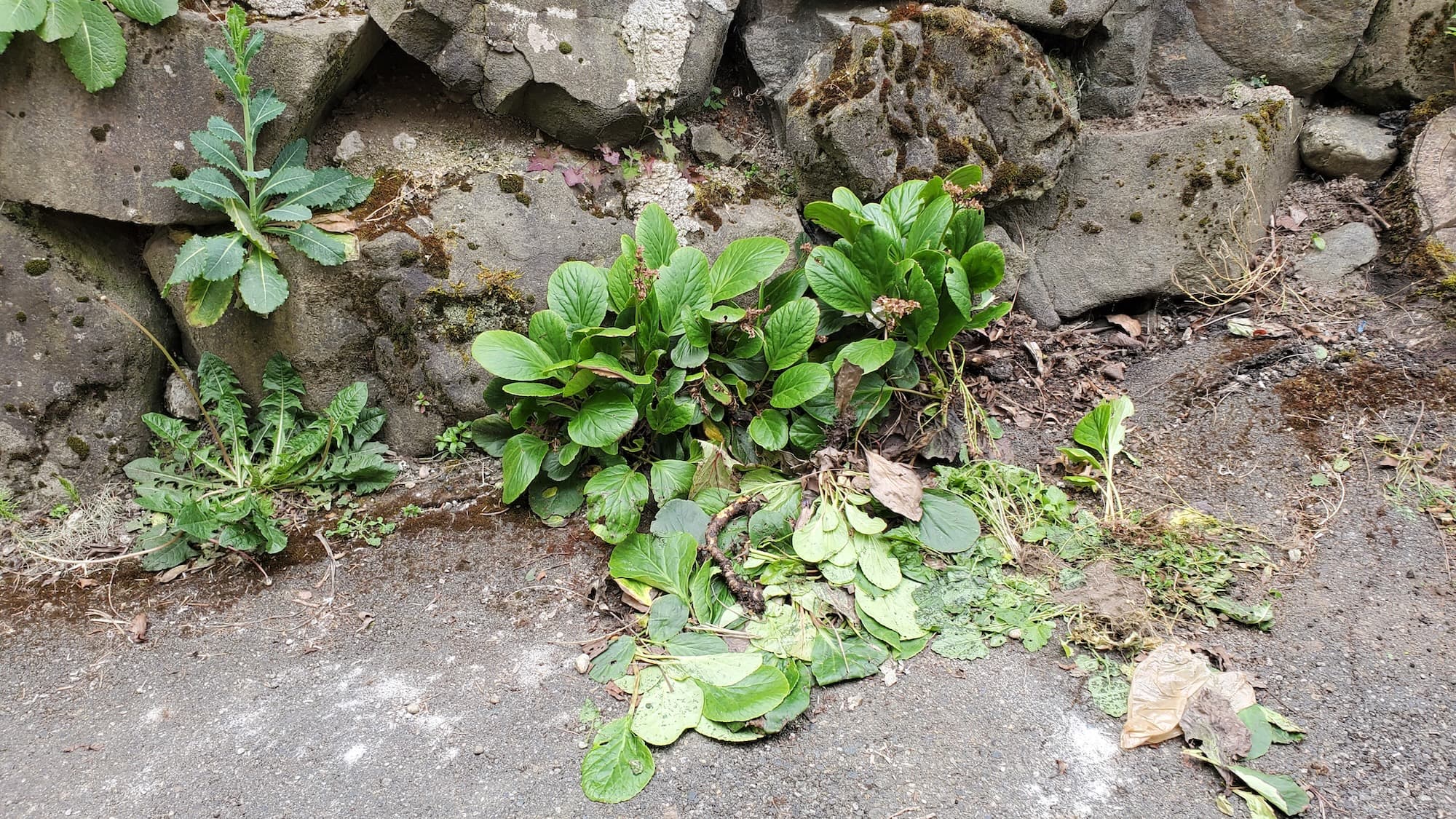West Seattle Remove weeds from raised planters
Homeowner’s Issue
Raised planters in West Seattle get hit from all sides: heavy winter rains, compact urban soils left from development, and shady microclimates under big maples and cedars. Many neighborhood spots — from Alki’s salt-sprayed beds to the shady slopes near Lincoln Park and the tighter lots in Admiral — develop shallow, persistent weeds like chickweed, oxalis, annual grasses, and creeping ivy. Soil in West Seattle often ranges from silty loam to dense glacial till and can compact quickly in raised beds that don’t get regular organic inputs. That means weeds take hold and hold moisture, encouraging moss and root competition.
Sun exposure varies block-to-block; many planters have alternating wet/dry cycles that favor opportunistic weeds after each rain. Slopes and curbside planters face drainage challenges and higher erosion risk during winter storms, so hand removal and good mulch are essential. HOA rules and curb appeal matter here: a tidy planter boosts resale and avoids complaints. Local watering guidance and occasional summer advisories mean we plan maintenance around seasonal restrictions and Seattle’s rainy season, using only sustainable, non-chemical methods to keep plants healthy and neighbors happy.
Our Quality Service
We remove weeds from raised planters using hand tools, targeted root removal, and organic amendments—no herbicides. Typical visit: assessment, manual extraction (trowel, hori-hori, hand fork), light soil remix with compost, and 2–3” organic mulch. For dense creepers we follow scheduled repeat visits to exhaust root reserves.
Tools/methods: hand-tools, mesh tarps for debris, compost, shredded bark or cocoa-free mulch, and optional weed fabric under gravel. We avoid broad‑spectrum chemicals and use compost and mulch to improve soil biology. Scheduling: most jobs are single-day for small blocks of planters; expect 1–3 hours per typical home run, longer for extensive ivy or deep-rooted invasives. We factor Puget Sound rain patterns into timing and advise spring/fall deep cleans.
Benefits: safer for kids and pollinators, better curb appeal, less rework between visits, improved soil and plant vigor, and long-lasting suppression when combined with repeat maintenance.
What’s Included
- Full assessment of raised planter conditions and weed types.
- Hand-pull removal with root extraction for visible weeds.
- Light soil amendment with screened organic compost (if requested).
- 2–3” organic mulch application to suppress regrowth.
- Cleanup and haul-away or green‑bin-ready piles (your choice).
- Photo note and care recommendations after service.
Options / Upgrades:
- Install biodegradable weed fabric under mulch for high‑traffic planters.
- Organic preemptive mulch refresh subscription (quarterly).
- Soil testing and targeted compost/top-dress plan.
- Plant replacement or native fill planting (quote provided).
Before & After / Expectations
Expect some noise and mess during the job—hand tools, disturbed soil, and a tarp for debris. Work windows depend on weather; heavy rain may reschedule to protect soil structure. Post-service, mulch may settle and need a light fluff in 2–6 weeks. For aggressive runners (ivy, bindweed) plan on 2–3 visits the first year.
Care tips for West Seattle:
- Water deeply in the morning during dry spells; avoid evening watering that encourages moss.
- Re-mulch thin areas each spring to block summer weeds.
- Watch for moss in shady planters near mature trees; aerate and add compost to improve drainage.
- Schedule maintenance visits ahead of spring flush and again in early fall.
FAQs (3–5)
Q: Do you use chemicals?
A: No. We use hand removal, compost, mulch, and physical barriers only—no herbicides.
Q: How long until weeds stop coming back?
A: Expect fewer weeds after 2–3 cleanings plus mulch and soil improvement. Deep-rooted species need repeat visits.
Q: Can you handle planters on steep slopes or curb strips?
A: Yes. We secure gear and choose short-load methods; erosion-prone areas get extra mulch and anchoring suggestions.
Q: Do you haul away debris?
A: Yes. Choose haul-away or we’ll stage cuttings for your green bin. We always clean the site.
Q: When is best time for service?
A: Early spring and fall give the best control; light tune-ups in summer reduce seed set.
Call to Action
West Seattle homeowners: if your raised planters are tired, overrun, or holding pests and moss, book a straightforward, sustainable clean-out. We schedule quickly, give clear estimates, and work to leave you with low-maintenance results that respect Seattle’s rainy rhythms.
Email neatandtidyseattle@gmail.com or call/text 206-538-9344 to request a free estimate. Quick photos of your planters speed up quotes. Licensed • Bonded • Insured — local crews who know Alki, Admiral, and Lincoln Park microclimates.










